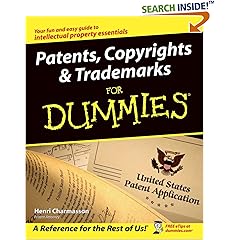Alerts, Warnings, Cautions


Beware of fake screenwriting gurus!
If you've spent any time on the internet at all, then you know the bottomfeeders of the human race regard cyberspace as their playground. Some of them will invade a productive functioning community only to sow discord. Anonymity is their friend. Still others are quite proud of the harm they cause or would like to create if only they had a brain. Quite a few of the cyberassholes of the universe are motivated by the mental illness that exists in that empty space between the elevator car and the top floor it can't quite reach.Others are motivated by greed. Or ego. Or maybe a combination of both with a few sprinkles of humanity's less admirable qualities thrown in for extra spice.
One favorite target of the scumsuckers are my fellow writers because you all have a great beautiful dream. Your dream equates to dollar signs to these creeps. Or maybe they just enjoy stomping on dreams because they don't really have one of their own. And just maybe, they are on the way down as you rise.
To help you steer clear of the sharks (as much as it might be possible), here are a few clues, red flags if you will, to watch out for (and please do visit the links that will follow this post):
Agents who are signatories to the Writer's Guild or AAR (Association of Authors' Representatives) do NOT charge reading fees or fees by any other label. If this is how they make their income, then you have to wonder just what failures they must be as an agent since they are supposed to be making their agent's percentage off of selling yours and other writers' work. An agent whose main source of revenue is reading fees or selling how-to videos or collecting "honorariums" to appear at expos and speaking engagements isn't really earning their keep by agenting. Make sense? |
Yes, Virginia, there ARE very legitimate screenwriting and novel consultants (otherwise known as "doctors"). But, if you ever hear a script or book doctor sales pitch from an agent ("Love your work but it could use a little polish...") run in the opposite direction. Not only do legit agents not charge you fees in their own name, they will not schluff you off on some fee-charging "doctor." I think you can probably figure out that oh-so-encouraging agent is collecting an oh-so-fat kickback from the old quack. |
I repeat... legit agents will not schluff off legit talent. If you are lucky enough to get a read, the legit ones will tell you straight up that 1) "Yes, I'm interested," or; 2) "Don't quit your day job," or; 3) "Liked it, but I'm not doing transsexual vampire rom-coms at the moment." If you are good and you have work product that will sell, that agent isn't going to be shipping you off to Snidely the Book/Script Doctor. |
Do beware the self-appointed gurus and raging egomaniac know-it-alls of writing. You can find them spending extreme amounts of their time trolling forums and communities looking for new recruits. These sharks can sniff out a fresh dreamer from miles away. The bottomfeeders of the fake expert variety may turn a pretty phrase or two (that they've probably picked up from someone else) and they may even flatter you but, after hanging onto to them as if they were your precious dream's one and only life preserver, after a while do ask yourself, "What have they done for me, lately?" Aside from selling you their latest how-to video or pamphlet or ticket to a lecture or however else they may be shilling for dollars, that is. What have they actually DONE for you? [COMING SOON: What Happened When One of These Fake Gurus Thought I Was a Threat to Him and I Didn't Even Know Who the Hell He Was!] |
Same goes for those who can't do even a half-ass job of passing themselves off as an expert on anything, much less how to write a novel or screenplay or anything else but they will still demand full obescience from you and anyone else who exists in what they regard as "their" domain even though some online writing communities may have hundreds of members. These folks are cult leader wannabe's and they'll never live out their wet dream. The Ego knows only his/her own brilliance. It simply is not possible that you have an intelligent thought of your own. If you should dare to shine on their parade, oh lordy, be prepared to be the object of their rage. |
Some will even come unhinged to the point of complete obsession which can, and has, turned into some fairly vicious cyberstalking. I know of one girl who'd allowed one of these nutcases to review her screenplay. She expressed her gratitude for his time and effort, agreed with much of what he had to say and challenged a point or two. That was four years ago and he still hunts her down to post obscenities and hate-filled rage anywhere and everywhere he can locate her on the internet. She'd been a member of my writers' messageboard community and we'd posted cordially to one another a few times. For that alone, he's placed me on his to-be-stalked list, as well. |
Beware if you have true talent to not let your light shine too bright amongst strangers on the internet. Take your time building trust. Meet in person if possible. Exchange emails. Get to know the folks who seem most helpful but still, be very careful in letting people know just how talented you may be if it becomes plain to you that your new-found acquaintances can't match your talent with their own or they've forgotten what it is to dream. If they get a glimpse of your potential, sometimes they will hate you for it. And if they've formed themselves into a gang expect them to do what gangs do. |
Yep. There are actual adults out there in cyberspace who have built and lovingly tended websites dedicated to the objects of their hate and rage-filled obsessions. It never occurs to them that they have made prisoners of their own selves while the object of their obsession is out living Life. Sometimes, a very talented life. |
A SPECIAL CAUTION FOR NOVELISTS, SHORT STORY WRITERS AND POETS: Beware of The Great Anthology Scam! It may come dressed up in different packages, but it has one aim: to separate you from your money. One example is the fake contest come-on in which you are solicited to enter a competition and only if your work is declared one of the winners will it be included in a "special anthology volume" of extremely talented writers (which you will be allowed to purchase for some exorbitant sum). Sure sounds like something pretty special, doesn't it? But that's only until you find out that EVERY SINGLE ENTRANT IS DECLARED A WINNER! Everyone wins, no matter what stinking steaming pile of shit they've submitted. And there you are... one of the crowd. Not exactly a career-enhancing move. But these bozos don't always get away with their scams. And paybacks can be a bitch. |
So there you have a few signposts and flags of the red variety for you to watch out for on your own internet journey to learning and wisdom and making dreams come true. Don't you dare let any person on this planet tell you that you have no right to dream. You have every right. Now, go learn how to make that dream come true! |
A LIST OF WEBSITES THAT POST WARNINGS AND CAUTIONS FOR WRITERS Writer Beware= Fake Contests= Writer Alerts= The Bewares Board= Writer's Rip-Offs by Angela Booth= Whispers and Warnings= Warnings for Writers= Storm Warnings= Don't be scammed= You Too Can Sniff Out Scams!= EPIC= Literary Agent Watchdog= Agents/Publishers NOT recommended= Scams to Watch Out For= Wronging Writers: Don’t Get Taken= Before You Write That Check (Scam Prevention)= Advice about Vanity Publishing= How to Sniff Out Literary Scams! =Beware of Rip-Offs |














